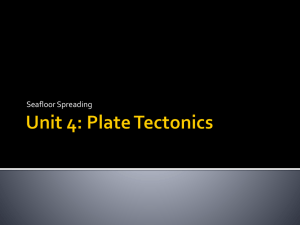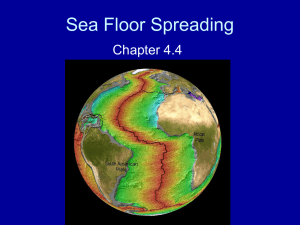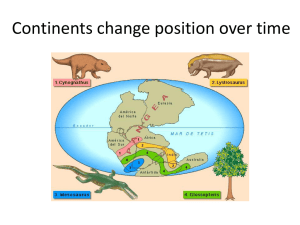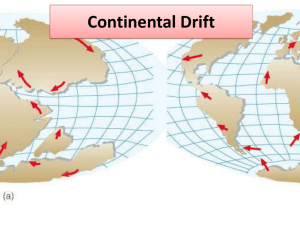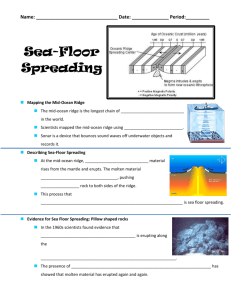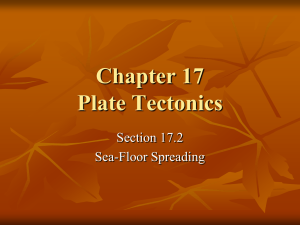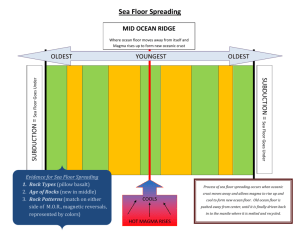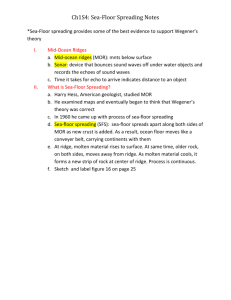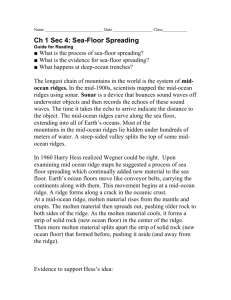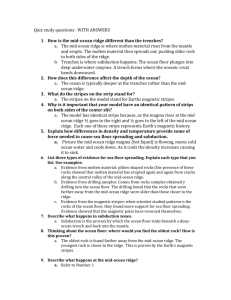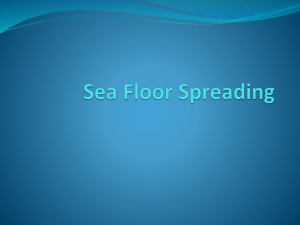9-19 Sea Floor Spreading.notebook
advertisement
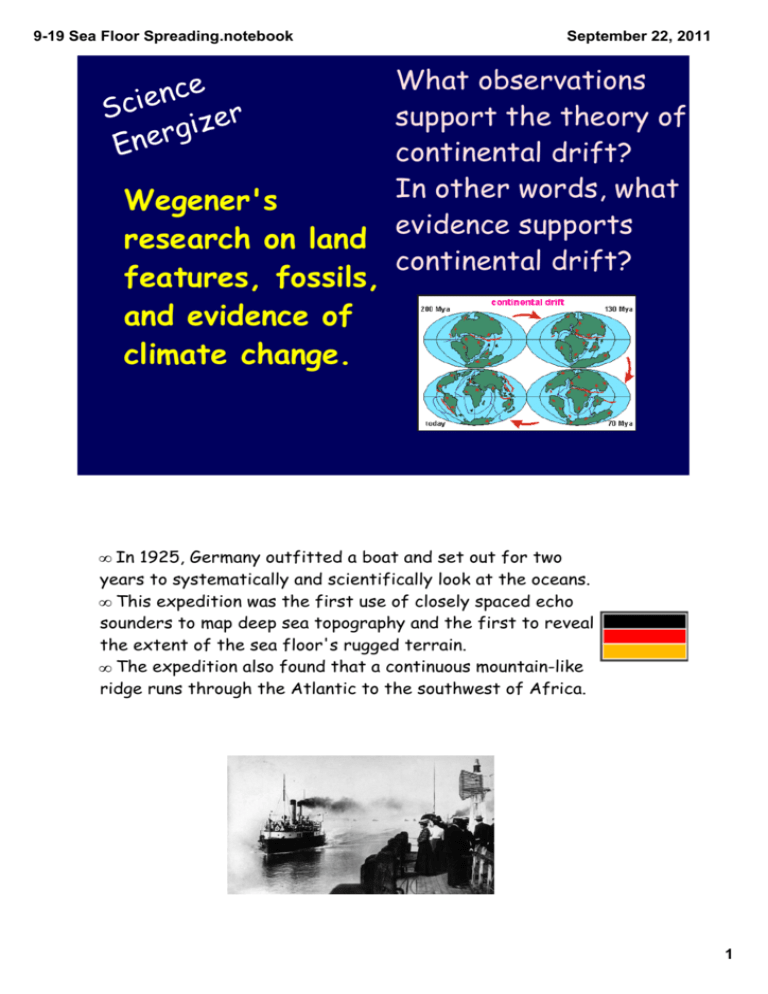
9­19 Sea Floor Spreading.notebook September 22, 2011 What observations support the theory of continental drift? In other words, what Wegener's evidence supports research on land continental drift? ce n e i Sc er z i g Ener features, fossils, and evidence of climate change. • In 1925, Germany outfitted a boat and set out for two years to systematically and scientifically look at the oceans. • This expedition was the first use of closely spaced echo sounders to map deep sea topography and the first to reveal the extent of the sea floor's rugged terrain. • The expedition also found that a continuous mountain-like ridge runs through the Atlantic to the southwest of Africa. 1 9­19 Sea Floor Spreading.notebook September 22, 2011 In the mid-1900s, scientists mapped mid-ocean ridges using sonar. What is sonar? Sonar is a device that bounces sound waves off underwater objects and then records the echoes of these sound waves. The time it takes for the echo to arrive indicates the distance to the object. 2 9­19 Sea Floor Spreading.notebook mid-ocean ridge an undersea mountain chain where new ocean floor is produced, it is a divergent plate boundary September 22, 2011 divergent boundary a plate boundary where two plates move away from each other 3 9­19 Sea Floor Spreading.notebook September 22, 2011 • Harry Hess was a geologist and Navy submarine commander during World War II. • Part of his mission had been to study the deepest parts of the ocean floor. In 1946 he had discovered that hundreds of flattopped mountains shape the Pacific floor. • The discovery of the Great Global Rift in the 1950s inspired him to look back at his data from years before. • Harry Hess proposed in 1960 that the movement of the continents was a result of sea-floor spreading. • In 1962, he added a geologic mechanism (seafloor spreading) to account for Wegener's moving continents. 4 9­19 Sea Floor Spreading.notebook September 22, 2011 Sea-floor spreading • The sea floor spreads apart along both sides of a mid-ocean ridge as new crust is added • As a result, the ocean floors move like conveyor belts, carrying the continents along with them 1. Sea-floor spreading begins at a mid-ocean ridge, which forms along a crack in the ocean crust. 2. Along the ridge, molten material that forms several kilometers beneath the surface rises and erupts. 5 9­19 Sea Floor Spreading.notebook 3. At the same time, older rock moves outward on both sides of the ridge. September 22, 2011 4. As the molten material cools, it forms a strip of solid rock in the center of the ridge. 5. When more molten material flows into the crack, it forms a new strip of rock. Evidence for Sea-Floor Spreading 1. Molten Material 2. Magnetic Stripes 3. Drilling Samples 6 9­19 Sea Floor Spreading.notebook September 22, 2011 Evidence from Molten Material Scientists found rocks that were shaped like pillows or like toothpaste squeezed from a tube. These rocks only form when molten material hardens quickly after erupting under water. These rocks showed that molten material has erupted again and again along the midocean ridge. Evidence from Magnetic Stripes Earth's magnetic poles have reversed themselves many times during Earth's history. Scientists discovered that the rock that makes up the ocean floor lies in a pattern of magnetized stripes. The stripes hold a record of reversals in Earth's magnetic field. 7 9­19 Sea Floor Spreading.notebook September 22, 2011 Evidence from Drilling Samples Rock samples were collected in 1968 from a drilling ship called the Glomar Challenger. Scientists determined the age of the rocks and they found that the farther away from a ridge the samples were taken, the older the rocks were. The youngest rocks were always in the center of the ridges. Sea Floor Spreading with Bill Nye http://www.youtube.com/watch?v=GyMLlLxbfa4 8 9­19 Sea Floor Spreading.notebook September 22, 2011 If new oceanic lithosphere is created at mid-ocean ridges, where does it go? Subduction when oceanic crust sinks beneath a deep-ocean trench and back into the mantle at a convergent plate boundary 9
